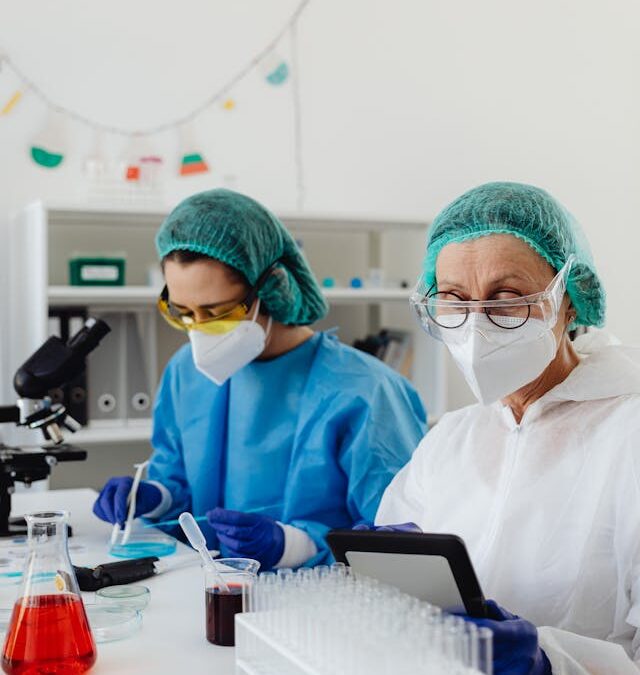Ordinance No. 2023-77 of February 8, 2023, concerning the practice of regulated liberal professions through a company, was published in the Official Journal on February 9, 2023. It applies to liberal professionals engaged in regulated medical activities. Although the ordinance will take effect on September 1, 2024, it raises the question of whether to choose sole proprietorship status or operate through a company.
I. Enhanced legal protection or not
The separation of personal and professional assets
The law of 14 February 2022 (1) modifies and strengthens the legal protection of liberal professionals practising independently by creating a separation between professional and personal assets.
Before the entry into force of the law of 14 February 2022, all debts contracted by a liberal professional practising a medical activity independently could be subject to enforced recovery by creditors both on the professional assets (medical equipment, available bank funds, etc.) and on the personal assets (real estate, personal property, savings, etc.) of the professional concerned.
The Commercial Code now provides a definition of the sole proprietor, stating that “a sole proprietor is a natural person who carries out one or more independent professional activities in their own name” (2), and whose professional estate is composed of “the assets, rights, obligations and securities they hold and which are useful for their independent professional activity or activities” (3).
All elements not included in the professional medical estate, regardless of the medical specialty, are deemed to belong to the personal estate. Since the law came into force on 15 May 2022, a real separation now exists between the professional and personal estates of liberal professionals practising independently, applicable to all professional debts arising after 15 May 2022. This separation prevents professional creditors from recovering debts from the debtor’s personal assets.
Professional social contributions of the individual practitioner are now also considered debts incurred in the course of professional activity (4), whereas previously they were regarded as personal debts.
Consequences ? The social security bodies to which doctors and medical professionals are affiliated can no longer, in the event of non-payment of contributions, recover their claim from the personal assets of the liberal professional (subject to exceptions mentioned below).
The entire personal medical estate is now, by law, exempt from seizure (5).
(1) Law No. 2022-172 of 14 February 2022 in support of independent professional activity.
(2) Article L526-22, paragraph 1 of the French Commercial Code.
(3) Article L526-22, paragraph 2 of the French Commercial Code.
(4) Article L526-22, paragraph 4 of the French Commercial Code.
(5) The Macron Law of 6 August 2015 provided for automatic protection from seizure only for the primary residence.
Absence of airtight separation and legal exceptions
The separation of professional and personal assets established by the law of 14 February 2022 is not absolute. The law expressly provides for certain exceptions :
- The tax authorities and social security bodies have a lien allowing them to recover their claims from the personal assets of the liberal professional practising as a sole proprietor in the event of fraudulent conduct or serious and repeated non-compliance with tax or social contribution obligations (6).
- If the personal assets of the medical professional are insufficient to allow personal creditors to recover their claims, those creditors have a lien on the professional assets. Personal creditors may enforce seizures and recover payment from the professional estate “within the limit of the profit earned during the last closed financial year” (7). The liberal professional thus risks losing the equivalent of their previous year’s income.
Practising a medical liberal activity as a sole proprietor therefore does not offer full legal protection.
II. Setting up a company or achieving a complete separation of assets
Transition to a company structure.
Setting up a company appears to be a lasting solution to the issues outlined above and offers professionals a complete separation between their personal assets and the professional assets developed within the company.
However, not all company structures provide such protection of the personal assets of liberal professionals, as only capital companies limit the liability of partners to the company’s debts.
While a professional civil company (SCP) may own its own assets, the partners’ liability for the company’s debts remains unlimited and joint.
Capital companies.
Since Law No. 90-1258 of 31 December 1990 (8), liberal professionals have been allowed to form a “classic” commercial company (SARL, SAS, or société en commandite par actions) or a SEL (SELARL, SELAS, SELAFA, or SELCA).
Several subsequent laws (9) and decrees issued by the Council of State, specific to each profession, have supplemented the provisions of the above-mentioned 1990 law.
Ordinance No. 2023-77 of 8 February 2023 merges liberal professional companies (SEL) and general law companies whose corporate purpose is to practice a liberal profession (10), so that only liberal professional companies will remain. This concerns professionals practising a medical activity through a company.
(6) Article L526-24 of the French Commercial Code.
(7) Article L526-22, paragraph 6 of the French Commercial Code.
(8) Law No. 90-1258 of 31 December 1990.
(9) Law No. 2011-1168 of 11 December 2001 allowing liberal professionals to create holding companies (SPFPL) ; Law No. 2008-776 of 4 August 2008 increasing the share of capital that can be held by external partners; Law No. 2011-331 of 28 March 2011 opening the door to capital-based interprofessional partnerships.
(10) The government was authorised to reform the laws governing the companies through which liberal professionals practise.
They will have a period of one year, starting from 1 September 2024, to comply with the provisions of the ordinance.
Liability of partners.
By forming a capital company, the physician no longer practises in their own name but through their company. As a result, their liability is limited to their contributions to the company’s share capital.
They cannot be pursued on their personal assets for debts contracted by the company, unless they have personally guaranteed a commitment made by the company.
They are only liable, for the repayment of company debts, up to the amount of their cash or in-kind contributions.
The exception to this rule applies to sociétés en commandite par actions (partnership limited by shares), where the partners have unlimited and joint liability. For this reason, it is preferable for a liberal professional to form an SARL or SAS.
These principles will not be altered by the entry into force of the ordinance of 8 February 2023.
Regarding professional civil liability of a partner, regardless of the company structure chosen, professional civil liability is unlimited and joint (11). Each practising professional is personally liable not only for their own professional acts, but also for those carried out by their employees or collaborators (12).
However, the consequences of this liability should be put into perspective, as medical professionals are required to take out professional civil liability insurance (13), which ensures compensation for patients, with only a deductible remaining at the professional’s expense.
Moreover, the company is jointly liable with the physician for the consequences of professional fault, meaning that in the vast majority of cases, the professional’s personal assets are not at risk.
Practising with others.
While liberal professionals often tend to share resources, for instance by creating a société civile de moyens (SCM), setting up such a structure does not allow them to practise their professional activity within a shared legal entity or to build a common professional estate. That estate will be considered as belonging to the company, with each partner holding a share of it in proportion to their interest in the company.
For example, with regard to physicians, while a physician who is a partner in a SEL must carry out their activity exclusively within that company (14), they may still hold shares in several companies (15). The company’s share capital may also be held by healthcare professionals or, up to one quarter, by third parties (16).
(11) Article 16 of Law No. 90-1258 of 31 December 1990; Article 16 of Law No. 66-879 of 29 November 1966.
(12) (12) Rouen Court of Appeal, 20 November 2019, No. 19/01667: “each partner practising as a physician within the company is personally liable, on all of their assets, for the professional acts they perform, with the company being jointly liable with them.”
(13) French Public Health Code, Article L. 1142-2, paragraph 1.
(14) French Public Health Code, Article R. 4113-3, paragraph 1.
(15) French Public Health Code, Article R. 4113-11.
(16) French Public Health Code, Article R. 4113-12.
Direct or indirect ownership is prohibited for any other healthcare liberal professional (such as retail pharmacists, paramedical professionals, veterinarians, laboratory directors or deputy directors of medical biology laboratories), as well as for any supplier, distributor, or manufacturer of medical equipment and pharmaceutical products, and more generally for service providers in the healthcare sector, insurance companies, and social protection or welfare organisations.
This clearly demonstrates the benefit of forming a company to protect both personal and professional assets. However, the choice of legal structure must be assessed on a case-by-case basis, as liability for debts, as well as the tax and social security regimes applicable to partners, vary depending on the company form.
Does your practice need to adapt to this reform ?
Let’s talk about it.

